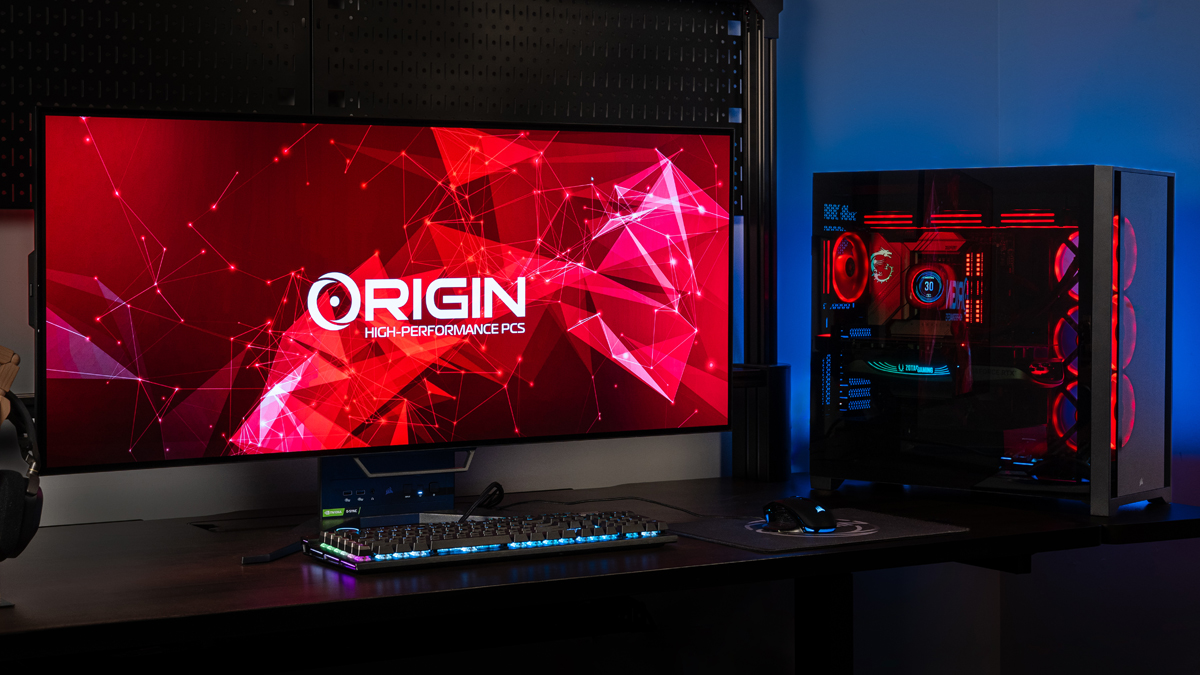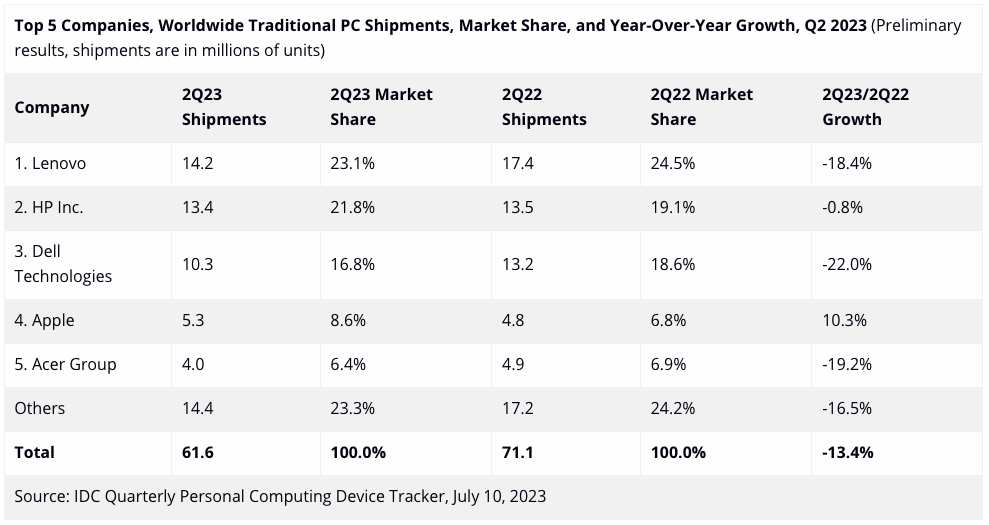Gaming PC sales slipped 13% last year, but analysts predict 2024 will see a return to growth
Sales of gaming PCs totaled 44 million units in 2023, and are set to get bigger.

Sales of client PCs declined 13.9% year-over-year and totaled 259.5 million units in 2023, according to IDC. Gaming PC shipments experienced a similar downturn as the overall PC market, with a 13.2% year-over-year decrease to 44 million units, analysts from the same firm suggest, which means that gaming machines commanded 17% of the market. Sales of gaming monitors experienced a 20.3% increase, IDC claims. But it appears that things may be rosier for gaming PCs in the near future.
It looks like shipments of gaming PCs and gaming hardware in general will get better in 2024 and onwards. IDC anticipates a slight 1% growth in gaming PC sales for 2024, mainly due to notebooks, and a 13.6% rise in gaming monitors driven by lower pricing and increased consumer interest, reaching 22.2 million units.
The gaming monitor market has made a remarkable recovery from its decline in 2022. With average prices around $300, gaming monitors have become an essential and cost-effective component of the PC gaming ecosystem. Technological advancements, such as refresh rates exceeding 165 Hz, response times of 1 ms or less, and a shift towards higher resolutions (2560 x 1440 or greater), have contributed to their success.
Meanwhile, shipments of premium GPUs are only expected to grow by about 3% year-over-year, according to IDC, which is slightly disappointing. This may be because neither AMD nor Nvidia are expected to ramp up production of their next-generation Radeon RX 8000 and GeForce RTX 50-series graphics cards in 2024 and are not expected to introduce their laptop versions this year, either.
The resilience of gaming PCs is attributed to sustained demand and a robust premium market segment. Gaming monitors have recovered from a 2022 slump, with technological advancements and price reductions leading to higher adoption rates. Looking ahead, the gaming market is expected to expand further, with PC volume projected to hit 52 million units and monitors expected to reach 29.6 million units by 2028.
While gaming monitor prices are expected to decrease annually, gaming PCs will see a rise in average selling prices, reaching $1,101, driven by the increasing popularity of notebooks and premium graphics cards. This trend indicates a growing market for high-end gaming hardware and a continued interest in enhanced gaming experiences.
"Though the global economy continues to struggle, shipments for gaming PCs have been a bit more buoyant due to sustained demand," said Jitesh Ubrani, research manager for IDC's Mobility and Consumer Device Trackers. "Most importantly, there's been an upward trend in pricing as the premium segment of the market has remained strong and will continue to see growth in the coming years thanks to dedicated and more affluent buyers who seem to be less impacted by the economy."
Get Tom's Hardware's best news and in-depth reviews, straight to your inbox.
The sustained demand for gaming PCs, despite economic uncertainties, can be credited to a dedicated and affluent consumer base that values high performance and premium experiences.

Anton Shilov is a contributing writer at Tom’s Hardware. Over the past couple of decades, he has covered everything from CPUs and GPUs to supercomputers and from modern process technologies and latest fab tools to high-tech industry trends.
-
PiranhaTech I'm not surprised. The performance increase for most games will be a modest bump in this generation, plus GPUs are very overpriced. Many seasoned PC builders are waiting a while to see where GPU prices go, especially with Intel Arc's improvements. The strategy is very legit. The main reason why I have a newer GPU was that my last one died on me.Reply
People that built during the Pandemic probably don't need to upgrade in a while, and had a hard sting from the costs. The many people that got into streaming are getting out of streaming. The ones that got one for streaming paid a really hard premium.
Many people bought gaming PCs because if they are getting a PC for work, might as well get one that could game. Many companies are returning to in-office work, going hybrid, etc. Most companies aren't likely to transition from onsite to remote if they haven't already done so (though I hope I'm wrong on this one)
AMD really did a good job on the RX 6000 series drives to where the 6000 series became a threat to the 7000 series (before the driver updates, the 6000 series would actually be much worse against it). If AMD gets the 7000 series drivers to have the kind of performance gains that the 6000 series had, this could make more people buy the 7000 series. The RX 6000 series launch drivers were horrible
It sounds like the AMD RX 8000 series is said to release around July (feel free to take this as a rumor). I can see some possibilities. If the RX 8000 series comes out, then price cuts may follow for older GPUs. I can see that making PC gamers want to upgrade. If you have a good RX 6000 card or a good RTX 3000 card, less likely you need one though. We may get some decent prices for the RX 6000 and the RX 7000 series especially -
vijosef Gaming PC had always been updated to play the newest, more demanding games.Reply
But there are no new good games on sale. -
bigdragon Inflation likely has a big role to play here. A lot of people got into the mindset of "buy it before the price goes even higher" when inflation drove huge increases in price. Reduced inflation takes FOMO out of the equation.Reply
That's true if you're looking at AAA titles that demand the latest hardware and feature support. It's not so true for smaller studios and indies. Most of the best recent games run smoothly on hardware from multiple generations ago.vijosef said:Gaming PC had always been updated to play the newest, more demanding games.
But there are no new good games on sale. -
vijosef Reply
... so they do not require updating the PCbigdragon said:That's true if you're looking at AAA titles that demand the latest hardware and feature support. It's not so true for smaller studios and indies. Most of the best recent games run smoothly on hardware from multiple generations ago.
